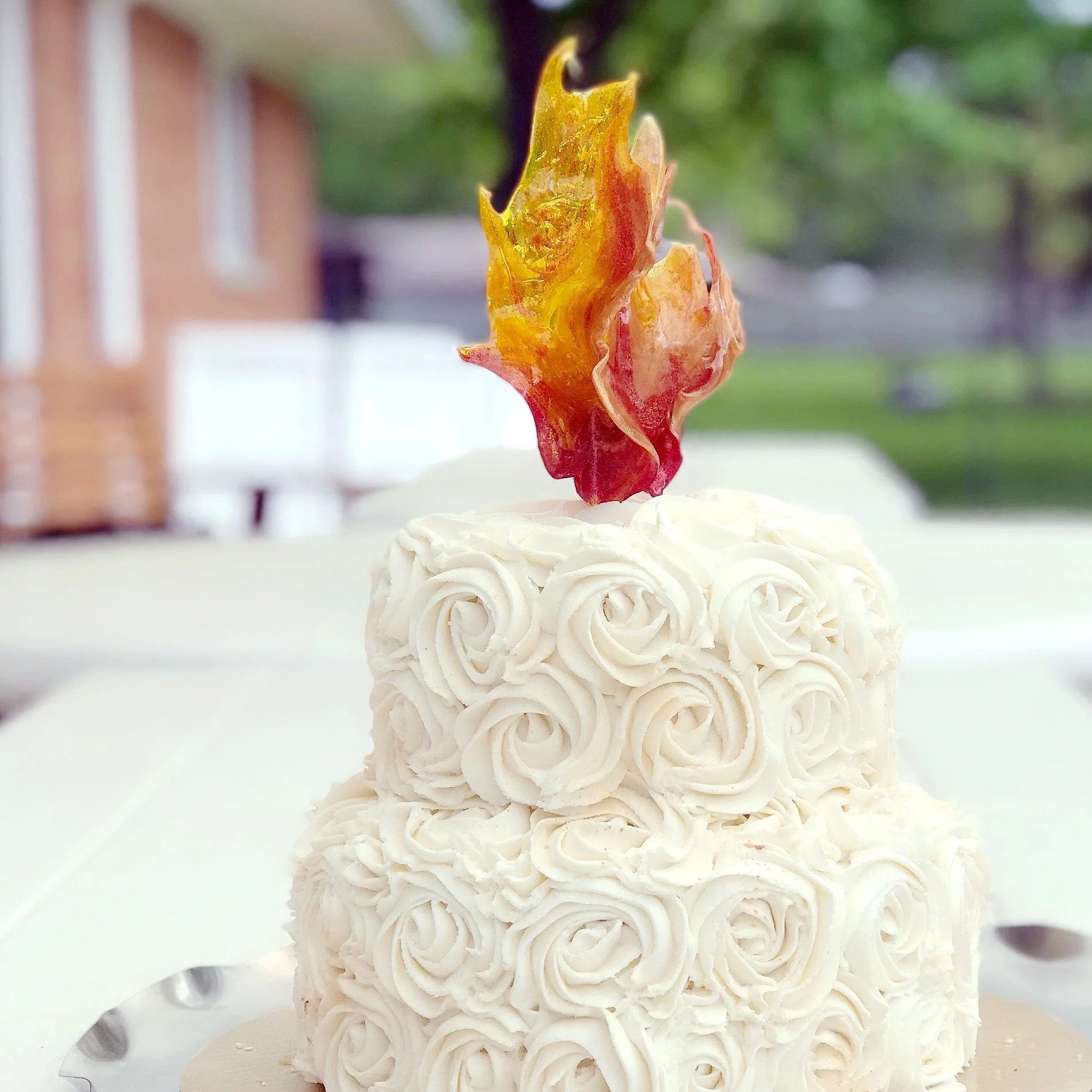Fixing Stupid: Learning to Love the Wrong Answer
/I did not love school. There may have been a time when I did love it but it is not something I remember. As a very little girl, I found school a terrifying ordeal. Everything was cold, loud, and urgent, and I always felt like I was doing something wrong whether it was getting in the wrong line or going too far ahead in the reading book. I did have many positive experiences during those years but they are overshadowed in my mind. I suppose that’s human nature.
As an older student, my stark fear gave way to a steady anxiety. Classes and teachers changed but there was always the same crude, frantic, phony world surrounding me and to which I had adapted. I was naturally intelligent (as most children are) and I cared about my grades and pleasing my teachers. Yet somewhere along the way I lost confidence and hope, overwhelmed with a sense of failure and fear.
In addition to the fear of being ridiculed by my classmates, my greater fear as a little girl was of humiliation via the ubiquitous wrong answer. It was the enemy of all happiness. It haunted my homework, my tests, recess, lunch, and my classroom experience. The wrong answer brought the red ink, the frown of a teacher, the mocking laughter of my peers. It said YOU are an idiot.
As a small child, I believed that I could learn everything and do anything. I hadn't yet learned to distrust my teachers or the system. I believed what they said. I was told I was smart. That I was a good student. And I never questioned that in the beginning.
Yet as the wrong answers started to pile up and the hard system wore down my flimsy confidence, I stopped believing adults when they said that I was intelligent. I could see the message clearly, scribbled in red ink, that I was not. Even when I knew the answer when called on in class, I was paralyzed by my lack of confidence and, doubting myself, would even give answers I did not believe to be true. I thought if I was answering a question, odds are that I was wrong. I was shy with my peers, terrible at "comebacks" and ignorant of current boy bands. Those things, among others, sealed my conviction:
I am stupid.
In my early years, I was considered a bright student and was at the top of my class, often receiving special recognition and honors. When I hit junior high, I earned a new label: underachiever.
To me, that label translated to one thing…
You suck. You are so unalterably stupid that you can't even do anything with the smarts that you do have.
My teachers still talked about how smart I was but now it was in a wistful way... as if remembering something that had been lost. My parents knew I was smart and communicated that to me, but that made it more painful; to know that there was nothing I could do to repay their confidence in me.
I wasn’t really stupid, I just hated school and myself. My soul and body were gripped by despair and pain and I wanted to disappear… to die. But that’s a story for a different day. That was MY story but grades aren’t nuanced enough to communicate those things. And ultimately, the reasons wouldn’t have been helpful to my teachers. Their job was to evaluate the grade and not to parent me…and I understand that. So I hobbled along with the labels and grades, struggling to find the motivation to keep trying. To keep living.
Fast-forward to my adult years during which I have struggled to overcome the ingrained belief that I am truly an idiot...
When I first started home educating, I taught my children fear of the wrong answer and unfortunately, they learned the lesson. They learned to run from it just as I had learned. They learned that it was far better to clam up than to risk looking like a real fool. The deer in the headlights stare of a school student is simply the youthful equivalent to pleading the fifth on the adult witness stand.
I refuse to incriminate myself. Think me stupid either way but I won't prove it publicly.
I passed along the disease of our educational system in my homeschool... and I have been working to heal that wound ever since.
I now want my children to embrace their wrong answers because I understand that there are no true right answers without them. In our search for the truth, we must engage our options and grapple with possibilities. Without wrong answers, we do not truly own the right ones. We become automatons who spit back information that someone fed to us. That is not true education. It has no place in my homeschool.
As a younger home educator I jealously guarded the teacher manuals. I was the keeper of the right answer and you may not have it, child, unless I choose to release the secret.
It took years for me to realize how ridiculous that was. The turning point was reading John Holt's How Children Fail. I read my own story in those pages and shook with emotion as my eyes opened.
I am not stupid.
“When children are very young, they have natural curiosities about the world and explore them, trying diligently to figure out what is real. As they become "producers " they fall away from exploration and start fishing for the right answers with little thought. They believe they must always be right, so they quickly forget mistakes and how these mistakes were made. They believe that the only good response from the teacher is "yes," and that a "no" is defeat.” ― John Holt, How Children Fail
Once I realized that my response to a fear-based education was normal, I handed over many of the teacher manuals to my kids. I soon found that there was less fear, less temptation to cheat, fewer tears. They had access to the secrets… and the magic pill to real learning wasn’t in that manual… it was in the hard work they would put in to make the knowledge their own. Our focus turned slowly from testing to learning and we began to correct the ridiculous but ingrained notion that the test exists to expose stupidity and teachers to correct the ignorant.
I deeply regret passing on the dysfunction that I learned in school to my children. But the human spirit is resilient and my kids are doing just fine. They are slowly learning that wrong answers are a gift and a part of the positive process of authentic education. They naturally crave truth and knowledge and do not need me to frighten them into pursuing those things. And I am learning how to change my language and methods to reflect the confidence and respect that I have for them.
There are indeed "right answers" in the world and I do teach them to my kids. Objective assessment is an important tool in our lives, especially for students hoping to move on to college. But I do strive to defend my children from an education that emphasizes perfect testing over authentic learning. Eventually, children must learn to seek, educate, explore, and uncover a passion for truth without your constant direction. Otherwise, they are just your little robots. For the short term.
At some point, they will begin to question... and they will either be prepared for that journey to self-knowledge or they will not. They will meet the wrong answer many times on that journey. Will it inspire fear? Or will they lean into the obstacle with enthusiasm, knowing that it will inevitably lead to true growth and knowledge?
Homeschooling moms... Do you have a struggling student? Want to bless their day? Put away the red pen for a while and just let them relax and learn without fear.
Don’t worry about perfect. It’s a chimera. Just strive to learn with deep love for the whole person.
Photo by Daniel Watson on Unsplash














































